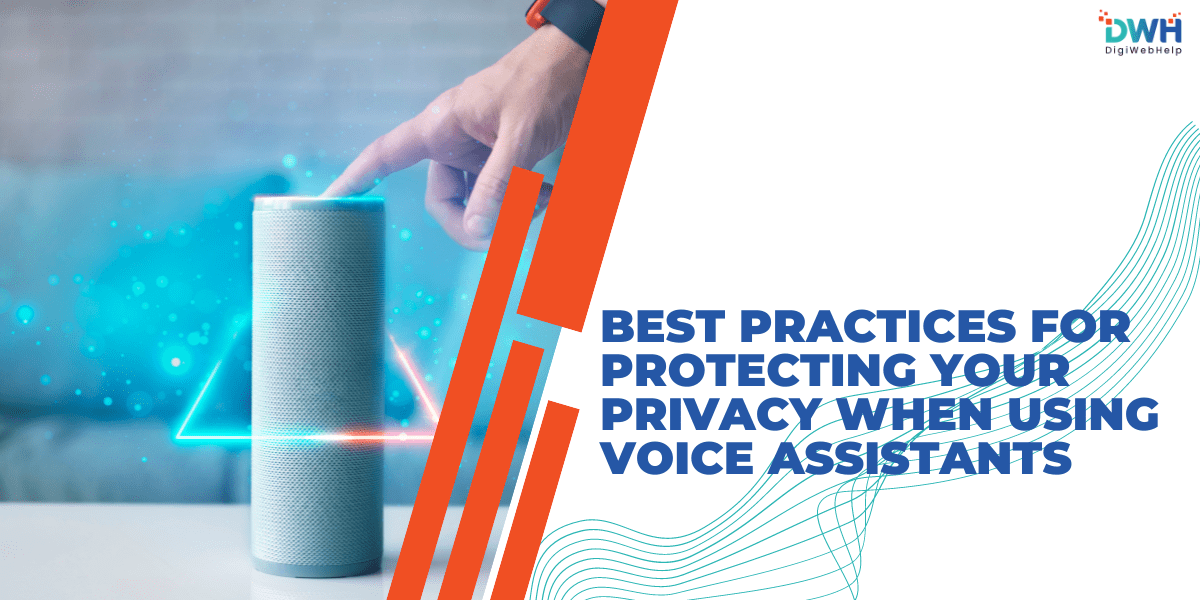
Best Practices for Protecting Your Privacy When Using Voice Assistants
AI Voice assistants have become integral to our daily lives, simplifying tasks and providing instant information and control at our fingertips—or rather, our voices. These AI-powered voice assistants help us automate tasks, control smart devices, manage schedules, and even provide entertainment.
However, this seamless access comes with a significant downside: privacy concerns. As these voice-enabled devices become more integrated into more aspects of daily life, safeguarding personal information becomes more crucial. In this blog, we will explore the best practices for protecting voice data when using voice assistants, ensuring that your data remains secure while enjoying their convenience.
Understanding How Voice Assistants Work
Voice assistants are programmed to detect particular wake words, such as “Hey Siri” or “Alexa” that trigger them to start recording and processing voice commands. Once activated, they use cloud-based systems to analyze the request and provide response. While this functionality allows voice assistants to provide accurate responses, it also means that voice data is collected and stored for a while.
The most concerning privacy risk is unintended recordings. This happens when a voice assistant activates by mistake due to background noise or a wrongly recognized wake word. Also, many users are unaware that this data may be shared with advertisers or third-party app developers. Understanding how these devices process your voice data is the first step toward protecting your privacy with voice assistants.
Reviewing and Adjusting Privacy Settings
Each voice assistant offers privacy settings that allow users to decide the data it gathers and stores. Reviewing and adjusting these settings is essential to minimize risks. For most devices, you can access privacy settings in the app associated with the voice assistant. This section often provides options to manage voice data, like turning off continuous listening features that keep the device always active, even when it hasn’t detected a wake word.
Alexa and Google Assistant offer settings to disable features like “Follow-Up Mode”, which keeps the assistant listening after your initial command. Disabling continuous listening helps ensure that your device only listens when necessary. Additionally, limiting the amount of data sent to cloud storage or third-party services is important to reduce exposure. Check the permissions for third-party apps or services integrated with your voice assistant and disable unnecessary connections.
Deleting Voice History and Data Regularly
Digital assistants store your voice conversations to improve performance and understand user preferences. However, allowing these recordings to store on the cloud can pose a risk, especially if unauthorized individuals gain access to them. Regularly deleting your voice records helps reduce the amount of personal data stored by these services.
Here are the steps to erase voice records on some popular platforms:
- For Amazon Alexa: Open the Alexa app > More > Settings > Alexa Privacy > Review Voice History. You can delete individual recordings or let Alexa delete it automatically after 3 or 18 months.
- For Google Assistant: Go to the Google Home app > Your data in the Assistant > Review and delete activity. You can choose to delete recordings manually or activate auto-deletion every 3, 18, or 36 months.
- For Siri: Siri doesn’t store voice data like Alexa or Google Assistant. However, you can disable Siri’s data storage. Just go to Settings > Siri & Search > Siri & Dictation History > Delete Siri & Dictation History.
Enable auto-deletion where available is a good practice. Regular removal of stored data reduces potential security risks.
Using Strong Security Measures
Strengthening the security measures for your voice assistant accounts can significantly improve your privacy. Start with turning on multi-factor authentication (MFA) for your accounts. MFA adds additional layer of security, requiring you to identify your identity with another device or email. This makes it harder for unauthorized users to gain access.
Also, use strong and unique passwords for apps associated with your voice assistants. Avoid using easy or repetitive passwords. Consider using a password manager to generate and store complex passwords. It’s crucial to regularly update your devices and apps with the latest software patches for protecting voice data. These updates usually provide security improvements that protect your system from potential risks.
Limiting Access to Third-Party Skills and Apps
Voice assistants often let you install other third-party apps or skills to enhance functionality. From controlling smart home devices to playing music or ordering groceries, third-party apps can let you perform anything you want. However, these integrations can add privacy risks if not properly vetted.
Before enabling any third-party skills or commands, review their permissions carefully and ensure the developer is credible. Disabling unnecessary or unused third-party apps reduces the potential attack surface for hackers. Keep an eye on the list of working apps on your gadget. If you stop using any, make sure to remove them.
Managing Devices in Public Spaces
Voice assistants are most commonly used in homes. However, using them in shared or public spaces can lead to unintended privacy breaches. For example, using a voice assistant in a room with multiple users or guests allows others to issue commands or access your personal information.
Dealing with these risks could involve using devices with voice recognition features. This helps restrict access to your personal assistant. Also, when in public areas like workplaces or hotels, use voice assistants with caution. There’s a chance that shared devices could be compromised.
Managing access properly is key for smart home appliances connected to your assistant. Make sure only trusted users can control or interact with such devices.
Being Cautious with Voice Commands
Voice assistants can make your life more convenient, yet certain commands should be avoided for security reasons. For instance, avoid using commands that involve sharing sensitive information, such as personal identification numbers, passwords, credit card details, and personal addresses. Providing this data with your voice can be risky. It’s safer to manually input such information rather than relying on voice commands.
Also, refrain from connecting your voice assistant to highly sensitive services, like banking or your voice assistants. The convenience isn’t worth the potential privacy risks associated with exposing sensitive data.
Conclusion
Maintaining privacy with voice assistants is essential to safeguarding your personal information in today’s connected world. By following these voice privacy tips—such as adjusting settings, regularly deleting voice history, and using strong security measures—you can effectively protect your voice data. Stay proactive in managing your devices, and you’ll enjoy the convenience of voice assistants without compromising your privacy.
Ensure your business stays ahead with AI voice assistant services designed for secure voice assistant usage. Partner with us to implement advanced solutions that prioritize protecting voice data while enhancing user convenience.










